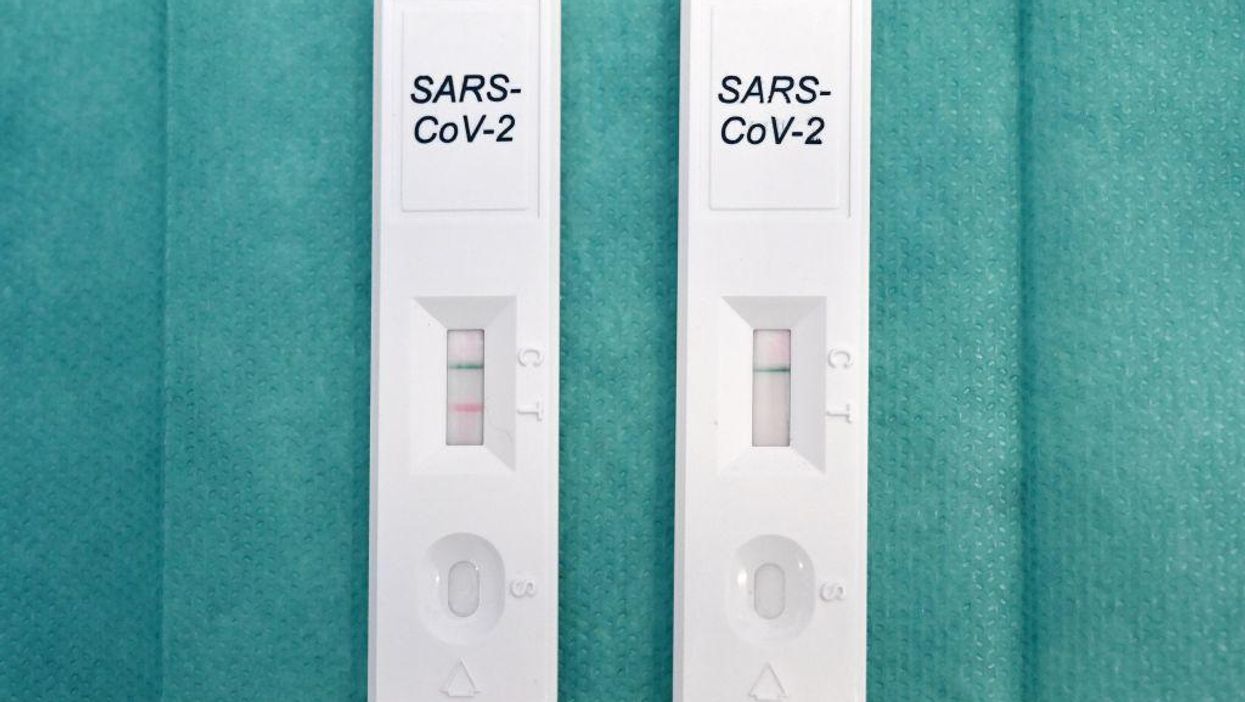
Mayank Makhija/NurPhoto via Getty Images

The Omicron variant of COVID-19 is far milder than Delta, according to a new study funded by the Centers for Disease Control and Prevention. The eye-opening data revealed that those infected with the Omicron variant are 91% less likely to die than those who are infected than the Delta strain.
The clinical study was conducted by Kaiser Permanente Southern California health care system – which operates 138 medical offices and 13 medical centers, plus has an affiliation with 37 community hospitals in Southern California. The study analyzed 52,297 Omicron cases and 16,982 Delta cases in Southern California between Nov. 30, 2021, and Jan. 1, 2022.
The study found that those infected with the Omicron variant were 53% less likely to have symptomatic hospitalization, had 74% less chance of being administered to the intensive care unit, and had a 91% lower risk of death compared to individuals with the Delta variant. Only one person of the more than 52,000 people with Omicron died, versus 14 deaths in the 16,982 with Delta. In addition, there were zero patients with Omicron who required mechanical ventilation, according to the research.
"Hospital admissions occurred among 235 (0.5%) and 222 (1.3%) of cases with Omicron and Delta variant infections, respectively," the authors of the study said.
Patients infected with Omicron had a median duration of hospital stay of three fewer days than those with Delta.
"During a period with mixed Delta and Omicron variant circulation, SARS-CoV-2 infections with presumed Omicron variant infection were associated with substantially reduced risk of severe clinical endpoints and shorter durations of hospital stay," the authors of the study concluded.
The CDC-funded study – which has not yet been peer-reviewed – did not reveal the ages of those who died or their vaccination status.
On Wednesday, CDC Director Rochelle Walensky shared the study on Twitter.
Despite the promising news, Walensky tempered the optimism by saying, "While less severe, #Omicron is much more transmissible & we are seeing the unprecedented impact. Over 1M cases in a day, 99% of counties with high transmission & strained healthcare systems. Protect against #COVID19: get vaccinated + boosted, wear a mask & stay home if sick."
While speaking at a White House Covid-19 Response Team briefing on Wednesday, Walensky said public health officials will monitor "deaths over the next several weeks to see the impact of Omicron on mortality."
"Given the sheer number of cases, we may see deaths from Omicron, but I suspect the deaths we're seeing now are still from Delta," the CDC head revealed.
While less severe, #Omicron is much more transmissible & we are seeing the unprecedented impact.\n\nOver 1M cases in a day, 99% of counties with high transmission & strained healthcare systems.\n\nProtect against #COVID19: get vaccinated + boosted, wear a mask & stay home if sick.— Rochelle Walensky, MD, MPH (@Rochelle Walensky, MD, MPH) 1642008210
The Omicron strain became the dominant variant in mid-December and now accounts for an estimated 98.3% of all new cases, according to CDC data.
There were 829,209 cases of COVID-19 in the U.S. on Jan. 12 compared to 90,024 cases on Dec. 12.
On Tuesday, Dr. Anthony Fauci acknowledged how transmissible the Omicron variant is and said nearly everyone will contract it.
"Omicron, with its extraordinary, unprecedented degree of efficiency of transmissibility, will ultimately find just about everybody," Fauci told J. Stephen Morrison – senior vice president of the Center for Strategic and International Studies. "Those who have been vaccinated ... and boosted would get exposed. Some, maybe a lot of them, will get infected but will very likely, with some exceptions, do reasonably well in the sense of not having hospitalization and death."
Also on Tuesday, U.S. Food and Drug Administration acting commissioner Dr. Janet Woodcock said that "most people are going to get COVID."
"I think it's hard to process what's actually happening right now, which is: Most people are going to get COVID," Woodcock said at a Senate Health, Education, Labor and Pensions Committee hearing. "And what we need to do is make sure the hospitals can still function, transportation, you know, other essential services are not disrupted while this happens."